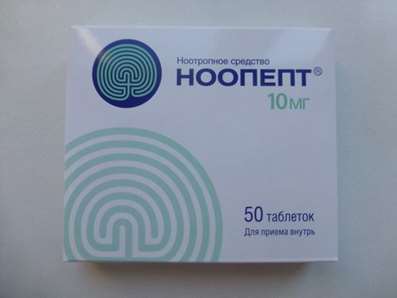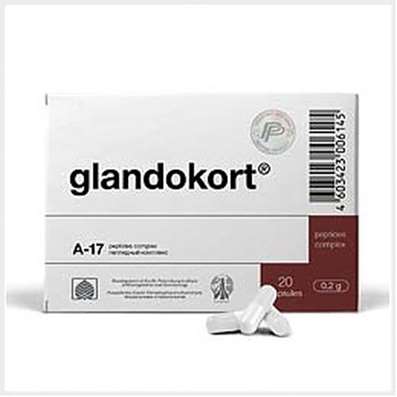Depression: Causes and Symptoms
08 Nov 2016
About the causes and manifestations of depression, apathy and mood swings phases

Depression is mood disorder, it is a complex mental disorders, related primarily to the emotional sphere. This disorder is characterized by a variety of emotional disorders in which people experience depression, anxiety, guilt, anhedonia, that is, the loss of ability to experience pleasure, or apathy - a condition where a person does not experience any negative or positive emotions. In addition, depression is characterized by certain violations in the sphere of thought. For example, people with depression may be difficult to focus, perform purposeful mental activity, which is associated with concentration of attention. In depressed people with difficulty making decisions. They present gloomy thoughts about themselves, about the world, about people.
In depression there are physiological manifestations as sleep disorders, bowel function, sexual needs. In patients with depression, disturbed the overall tone of the energy, they feel fatigue. When somatisation of depression a person experiences unpleasant sensations in the body. If you look at such a person, then it is possible to observe the behavior of passivity, avoidance of contact with people, the rejection of entertainment. Depression is often accompanied by increasing abuse of alcohol or other psychoactive substances, which are used to improve the mood.
Depression Research
Manifestations of melancholy have been described since antiquity. Hippocrates introduced the terms "mania" and "depression". At the end of the XIX century German psychiatrist Emil Krepelin, the founder of the school Krepelin, first described by manic-depressive psychosis. Later, they began to distinguish unipolar and bipolar forms of depression. The current understanding of manic-depressive illness is called bipolar disorder. In addition, we can talk about the so-called neurotic depression, which may be exposed to people who are not suffering from a mental illness, but having psychological difficulties that predispose to depression. Manic-depressive psychosis has been described for a long time, and now this concept is obsolete. In the modern world is more common diagnosis of "depressive episode", which can have varying degrees of severity.

Causes of depression
Modern understanding of depression described in the framework of the biopsychosocial model. Causes of depression are never mixed. Biological factors of depression confirmed by genetic studies, but the contribution of genetic factors as a whole is low. Neurochemical studies show that people who are prone to depression, there is a disruption in the metabolism of neurotransmitters that contribute to the interaction between nerve cells and the passage of electrical impulses.
You can improve your mood with Afobazol, Phenibut, Phenazepam.
Psychological causes of depression can be summarized in two main directions. First of all, it is a violation of self-confidence and self-esteem - introjective options for depression in which a person has some idea about their own "I" as unworthy of love and respect. In this regard, various embodiments are formed compensatory behaviors. For example, it can be expressed in such personality traits like perfectionism. In this scenario, a person can take himself only when he is ideal, other people appreciate it perfectly, and the products of its activities have no flaws. If life and human activity aimed at to confirm the good in itself, there comes exhaustion and depression. That is, if the whole activity aims to achieve results, a person loses mental energy, which is formed by the experience of positive emotions: joy, pleasure, interest. Such mechanisms are often characterized by men depression.
Another trend in the understanding of the psychological causes of depression is a problem in a relationship. When a person needs another person to feel alive and able to adapt to reality, he is inclined to merge with another person and minimize the distance. In such cases, the person experiences himself through another person. This tendency to depend in a relationship fraught with depression. In such a relationship partner often feels suffocated. He does not leave space to lean too close. Such relationships often break down, and the person who needs this merger, it feels like a loss of self. It is an experience people are characterized as follows: "As if I do not, if another left me." Such a relationship often leads to depression, because a man has no ego strength that allows him to live independently.
In addition, there are social mechanisms of depression. There is a certain cultural influence that affects the severity of depression in a given culture. In northern cultures, the incidence of depression is higher than in the southern and eastern. Here at the forefront cult success, rational, well-being, which is implanted through the media and the education of parents. In the process of growing up people introjected, that is take deep in their world, the notion that they need to have a specific list of achievements to be good. Activate mechanisms of social comparison, and when one compares himself with others, and the comparison is not in his favor, it is fraught with depression. In addition, people pay a lot of attention to developments in respect of their own corporeality: what should be the body that it is socially acceptable and what should be done with this body to be accepted in society.
The manifestations of Depression
Longing can be felt physically in the form of squeezing in some parts of the body. Most people talk about squeezing in the chest. There is a concept vital anguish when a person feels that something is bad, but does not know what exactly. He does not experience loss, does not suffer from being separated from a loved one, but in a state of melancholy life. Patients with such symptoms are often told that they simply do not complain of depressed mood.
Anxiety is a sense of inner tension, the expectation of something negative. Anxiety is often accompanied by depression, but can also occur independently. When anxiety depression may occur in addition to the melancholy and depressed mood.
Feelings of guilt and even a tendency to self-incrimination is peculiar to people with low self-esteem. Here, a correlation of low self esteem and depression. Guilt is usually associated with personalization, ie the error of thinking, in which people often take the bad things at his own expense, and good event finds a consequence of external factors.
Anhedonia is a condition in which a person can not experience pleasure from the fact that before it was pleased. For example, a patient with depression said that earlier would have given half my life for a trip on a fishing trip, and now even to think about it does not want. This is a consequence of anhedonia, distancing from anything touched before.
Apathy people often experience through our own passivity. Apathy - the most severe manifestation of depression, because this condition is difficult to treat psychological methods. When nothing touches the human emotional apathy nor bad nor good sense. In a state of apathy man wants to lie in bed, he had no emotions, it causes nothing, no motive. In this case a person has a obligation. For example, he says to himself that he must get up, make breakfast, feed the children, but it is experienced as pressure ought, not as a goal or desire. Most people understand that their apathy when do not want anything but to stay in bed.
Sleep and appetite. Emotions are psychological phenomena that have great physiological, somatic component. They have a cognitive component to the experience level: before you feel something, we interpret what happens. When the emotional state is unsuccessful, violated function of the autonomic nervous system, which controls the internal organs. Man survives a variety of physiological symptoms: violation of appetite in one way or another, and sleep disorders. Internal stresses make sleep surface or prevent from entry into
Behavior. At the level of behavior of depression manifested in passivity, avoidance of contact, rejection of entertainment gradual alcohol abuse or substance abuse.
Moreover, emotions affect thinking. On the other hand, thinking affect emotions. Some people develop depression due to the biochemical mechanisms that do not depend on his personality. For example, from childhood man she knows that in the morning his mood worse, and after dinner the mood improves. When a person feels heavy emotional state, he appears unconscious need to justify this state of cognitive. In humans, there is a need to think about the bad. Thinking, too, can affect the emotions. Mechanisms of cognitive therapy of depression is based on the fact that with the help of a therapist man working on these errors of thought, which are inherent in depressive thinking. He becomes aware of the error at the cognitive level.
Forms of Depression
One form of depression is bipolar disorder. It manifests itself as a mood disorder, which occurs with the phase current. Phase - a period of time that lasts for weeks or months. In this phase of bipolar disorder mania phase is replaced by depression. Mania is peculiar to the positive mood. In this state, a person full of plans, little sleep, does not analyze the obstacles, commits rash acts.
In bipolar disorder, there are significant genetic contribution rates. When neurotic depression genetic contribution is lower and the greater role played by psychosocial factors. In this disorder, there is no phase of mania, disturbances of thinking and reality testing, delusions or hallucinations. Treatment of neurotic depression are more dependent on psychotherapeutic procedures.
Another form of depression is unipolar depression, ie depressive episode. He may have three degrees of severity: mild, moderate and severe. This state lasts for at least two weeks. If a depressive episode is repeated, then the diagnosis is changed from a depressive episode in the recurrent depressive disorder, ie periodically pop depression. A person can move depression once in their lives, and can suffer it twice a year.
In addition, there are some forms of mood disorders such as cyclothymia and dysthymia. Rather, it is the characteristics of the individual than the disease. Dysthymia - property of the person to be in a gloomy mood, have a pessimistic view of the world, but at the same function for life, never turning to psychiatrists. The intensity of depressive symptoms in dysthymic is low, but continues for years.
Cyclothymia is a phase with dysthymia presence at which the phase changes to phase dyssyntonic good mood and so on. The difference between bipolar disorder that is a characteristic associated with the human personality and his outlook. You can talk about the nature of cyclothymic or dysthymic personality. Such depression takes a lifetime, especially if the person on it is not working. And it's not radically restricts it in life. But when there is a true clinical depression, a person is limited in life. Often he can not work due to the fact that he can not concentrate, get out of bed, he does not have the mental tone, but there is a strong longing.
Treatment of Depression
There are several areas of psychotherapeutic treatment for depression. In particular, work with depression psychoanalysts. They are more focused on the analysis of the earlier losses, injuries. One of the most effective is cognitive-behavioral therapy of depression, which the author - Aaron T. Beck. Beck Depression concept called cognitive therapy. The basic theoretical premise is that a person has a negative basic beliefs, ideas about themselves, the world, the future, which keep it within the depressive pit.
Man should be compensatory strategies of behavior that he should please everyone and should not be mistaken. These behavioral strategies lead to exhaustion or frustration. In cognitive therapy, there are a number of techniques that are intended to correct these basic beliefs. At first corrected more superficial beliefs. Man learns to recognize the error of thinking. When it approves it in your life, then begin to gradually adjusted basic beliefs too. He begins to increasingly accept yourself for what it is, ceases to depend on the opinions and estimates of other, permit yourself to make mistakes and to adequately treat them. Beliefs are corrected, and the life situation begins to be interpreted through the prism of other beliefs and outlook, which is more adaptive.
In addition, depression is treated with medication. It is well known that half of the US population takes antidepressants (Afobazol, Phenibut, Phenazepam and so on). In Russia, this practice is also common, but far fewer people are turning to psychiatrists. The history of the Soviet period of Russian psychiatry quite repressive. there is prejudice in the minds of people.
Depression should be treated comprehensively. If a person treats depression with antidepressants, it is not mature psychological mechanisms of coping with emotions. As a result, sooner or later it comes on the same rake.
The incidence of depression
According to statistics, women depression occurs more frequently than men. This is due to the fact that women are generally more delicate nervous organization and the present cyclic hormonal changes. The most vulnerable age range - after 45 years. In old age, depression is associated with anxiety. There are forecasts that in the XXI century depression will be second only to cardiovascular disease disability reasons. In general, Western countries it really is a social scourge.
The impact of depression on physical health
There are two mechanisms for the influence of depression on physical health. Firstly, there is a somatization in which it is not about physical health, and about the symptoms that a person experiences as impaired physical health. Often, when a person has depression, there are so-called psychogenic pain, ie pain in different parts of the body. In this medical studies have lead to some results. But a person suffers bodily systematic: it can be very headache or, for example, the knee; moreover, there are cardiac or stomach pain.
Another mechanism - a depression effect on health, on changes in the tissues of the body that are associated with depression. By itself, the depression does not cause damage to internal organs. But the person who is in the doldrums, often leading an unhealthy lifestyle. With a grim look at the state of things in life, it can not apply to doctors or, conversely, too much to handle. Physiological, biochemical components of depression are not fully understood. Regarding psychology, here too many white spots, in particular in the specification family and cultural depression mechanisms. Scientists are trying to understand why, for example, in southern countries in depressed patients is less than in the north, but in India, more than in the whole world.

 Cart
Cart





